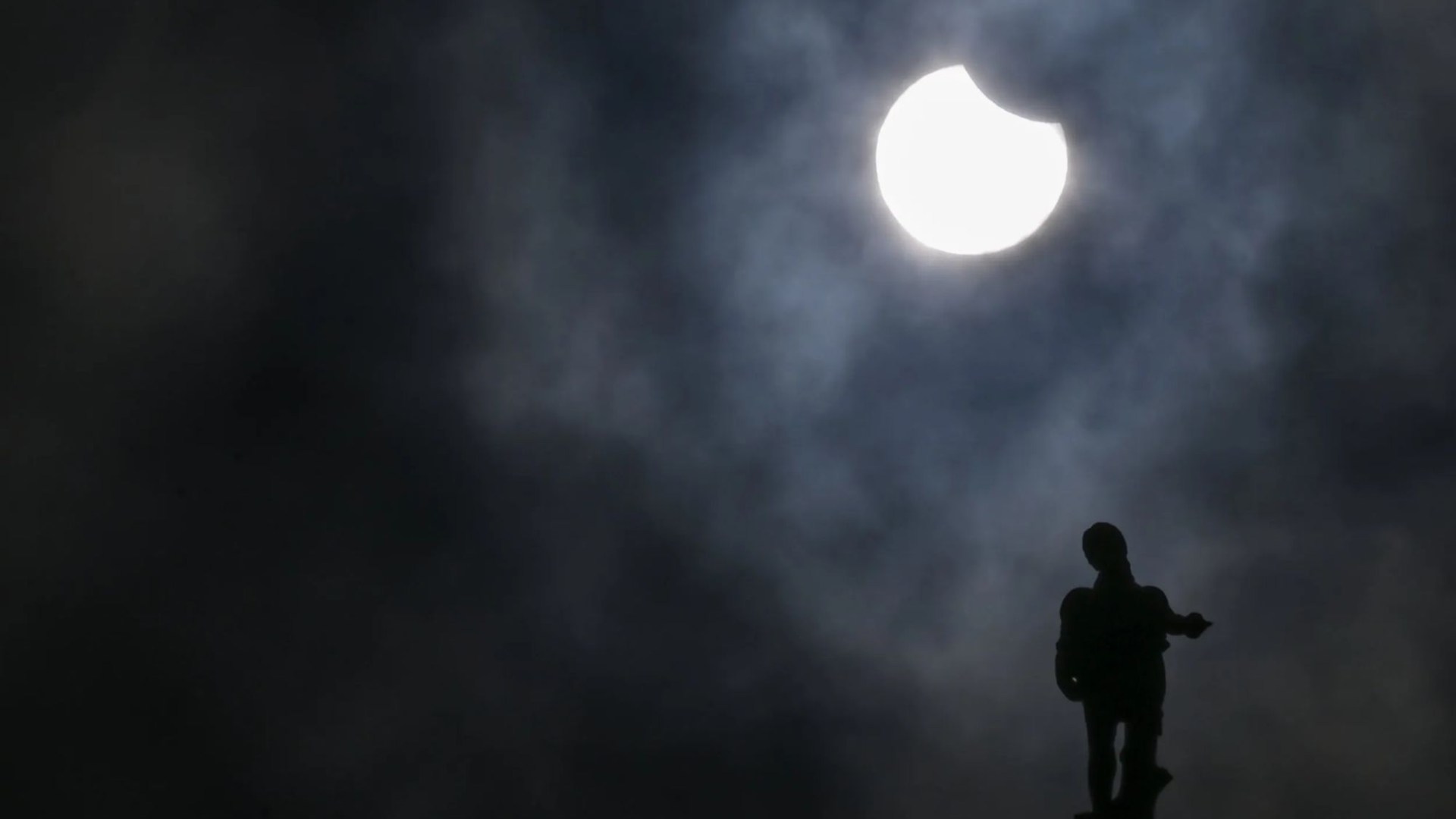Science
Irish Stargazers Prepare for Stunning Lunar Eclipse This Sunday

A significant astronomical event is set to captivate stargazers across Ireland this Sunday, with a rare partial lunar eclipse occurring at sunset. The eclipse, expected to begin around 20:00 and last until approximately 21:30, will be visible from all parts of the country, particularly favouring those on the east coast.
Described as a deep partial eclipse, this phenomenon will appear nearly total to observers in Ireland, while those in mainland Europe will experience the full effect. According to Astronomy Ireland, millions of people typically tune in to witness lunar eclipses, making this event a prime opportunity for enthusiasts and casual observers alike.
David Moore, editor of Astronomy Ireland magazine and a prominent figure in the field, emphasized the rarity of this occurrence. He noted that Ireland will not see another total lunar eclipse until New Year’s Eve 2028, which is over three years away. “There will not be a Total Eclipse of the Moon visible from Ireland until New Year’s Eve 2028,” Moore stated. He encouraged the public to seize the moment and share their photographs for a special edition of Astronomy Ireland magazine.
The organization invites participants to use any camera available, including smartphones, to capture the event and submit their best shots on the Astronomy Ireland website. This engagement reflects the widespread interest in celestial events among the Irish populace.
Looking ahead, another notable event is on the horizon—a near-total solar eclipse scheduled for August 12, 2026. During this event, over 90 percent of the sun will be obscured when viewed from Ireland, resulting in noticeable changes in light and temperature. While this solar eclipse will be partially visible from Ireland, those wishing for a complete experience may consider traveling to Spain, where it will be fully observable.
Moore pointed out that the last total solar eclipse visible from Ireland occurred in 1724, and the next will not occur until 2090. He has had the privilege of witnessing two total solar eclipses, one in Turkey in 2006 and another in the United States in 2017. He described these experiences as among the most spectacular sights in nature, resulting from the rare alignment of the sun, Earth, and moon.
“This weekend’s eclipse is a different phenomenon, but all eclipses share that unique alignment,” he noted. Moore encourages everyone to appreciate the natural wonders of the universe, urging them not to miss this weekend’s event.
For those interested in sharing their eclipse photos for publication, visit the Astronomy Ireland website at www.Astronomy.ie.
-

 Top Stories3 months ago
Top Stories3 months agoTributes Surge for 9-Year-Old Leon Briody After Cancer Battle
-

 Entertainment4 months ago
Entertainment4 months agoAimee Osbourne Joins Family for Emotional Tribute to Ozzy
-

 Politics4 months ago
Politics4 months agoDanny Healy-Rae Considers Complaint After Altercation with Garda
-

 Top Stories4 months ago
Top Stories4 months agoIreland Enjoys Summer Heat as Hurricane Erin Approaches Atlantic
-

 World5 months ago
World5 months agoHawaii Commemorates 80 Years Since Hiroshima Bombing with Ceremony
-

 Top Stories3 months ago
Top Stories3 months agoNewcastle West Woman Patricia Foley Found Safe After Urgent Search
-

 Top Stories5 months ago
Top Stories5 months agoFianna Fáil TDs Urgently Consider Maire Geoghegan-Quinn for Presidency
-

 World5 months ago
World5 months agoCouple Convicted of Murdering Two-Year-Old Grandson in Wales
-

 World5 months ago
World5 months agoGaza Aid Distribution Tragedy: 20 Killed Amid Ongoing Violence
-

 World5 months ago
World5 months agoAristocrat Constance Marten and Partner Convicted of Infant Murder
-

 Top Stories4 months ago
Top Stories4 months agoClimbing Errigal: A Must-Do Summer Adventure in Donegal
-

 Top Stories4 months ago
Top Stories4 months agoHike Donegal’s Errigal Mountain NOW for Unforgettable Summer Views









